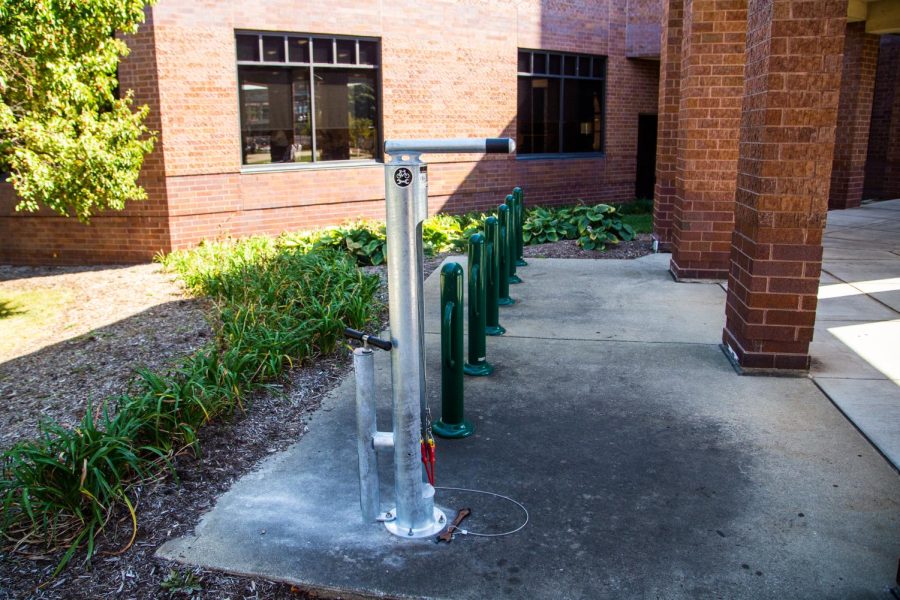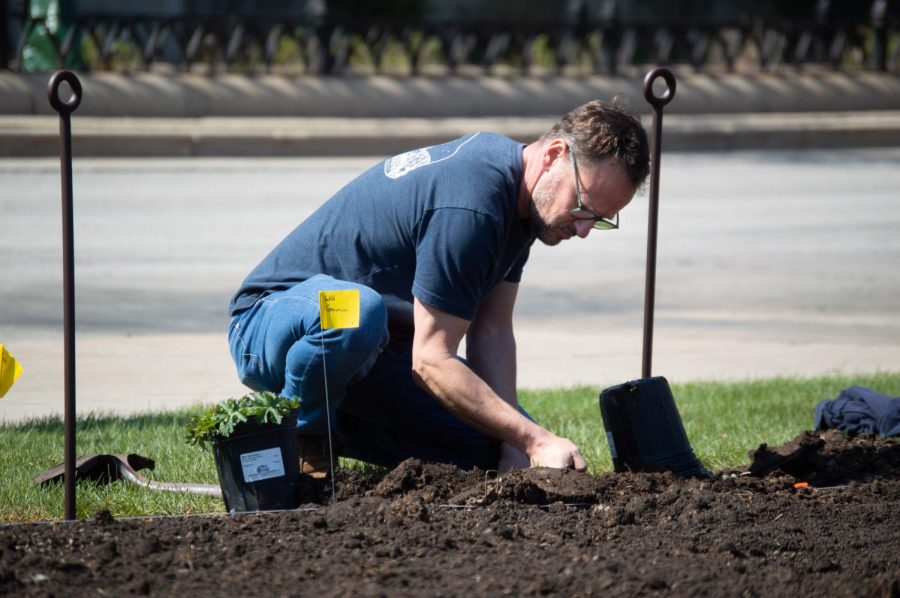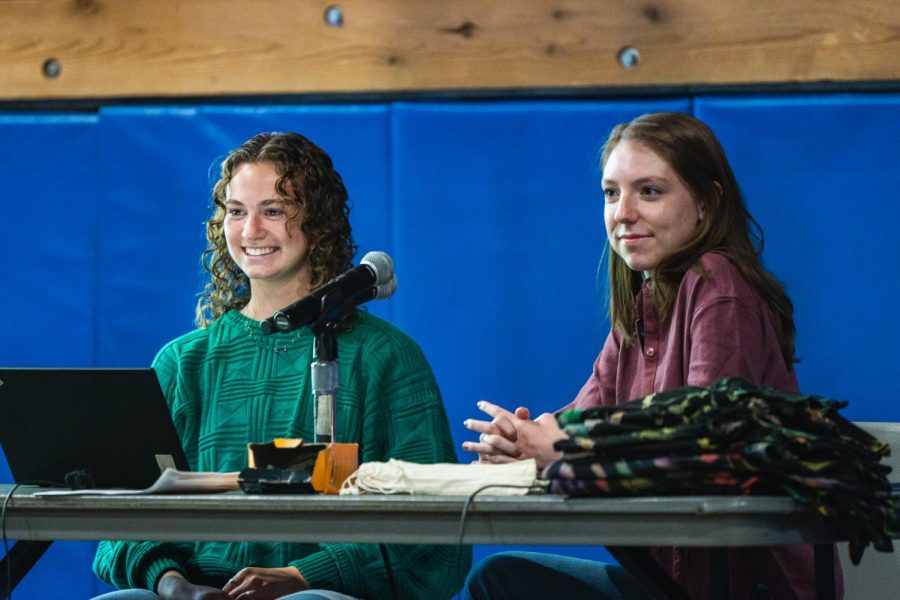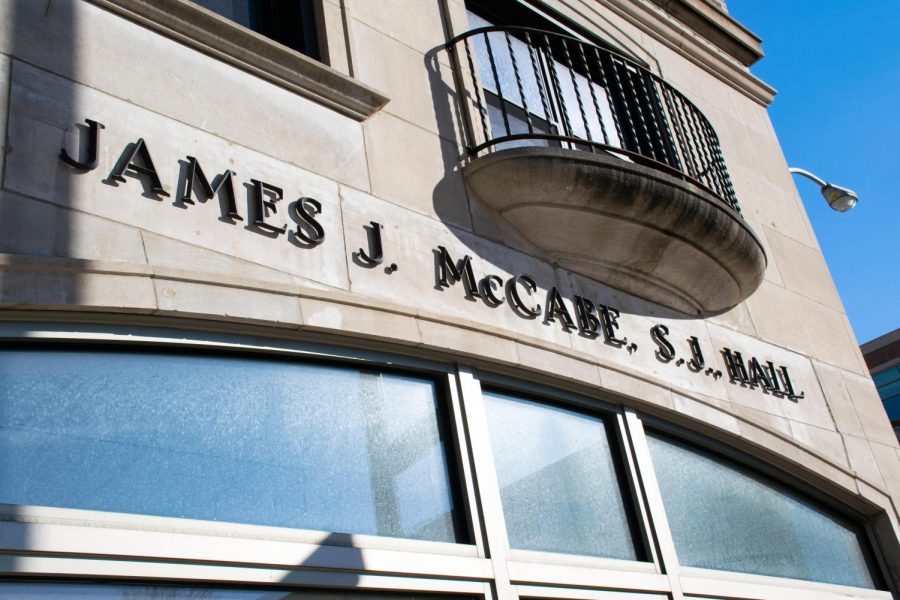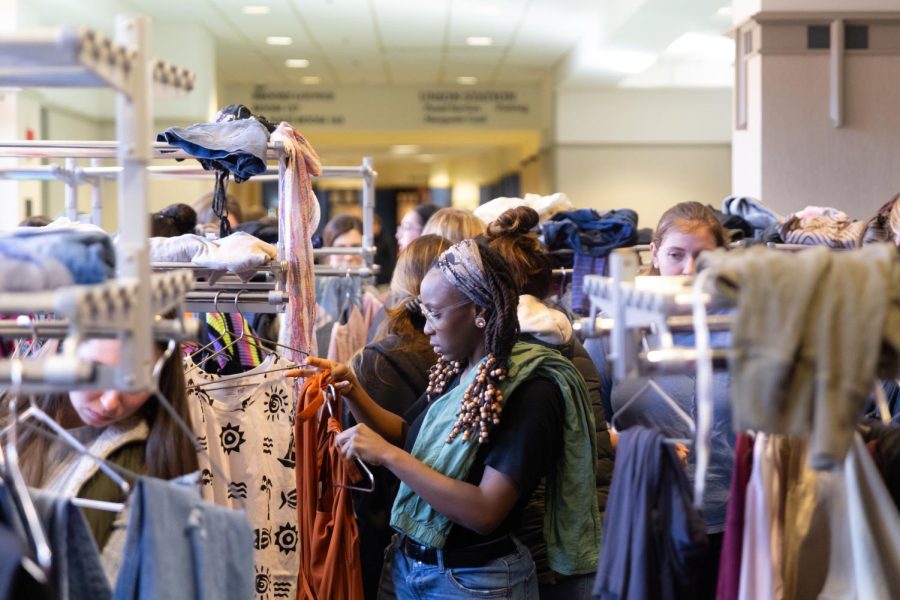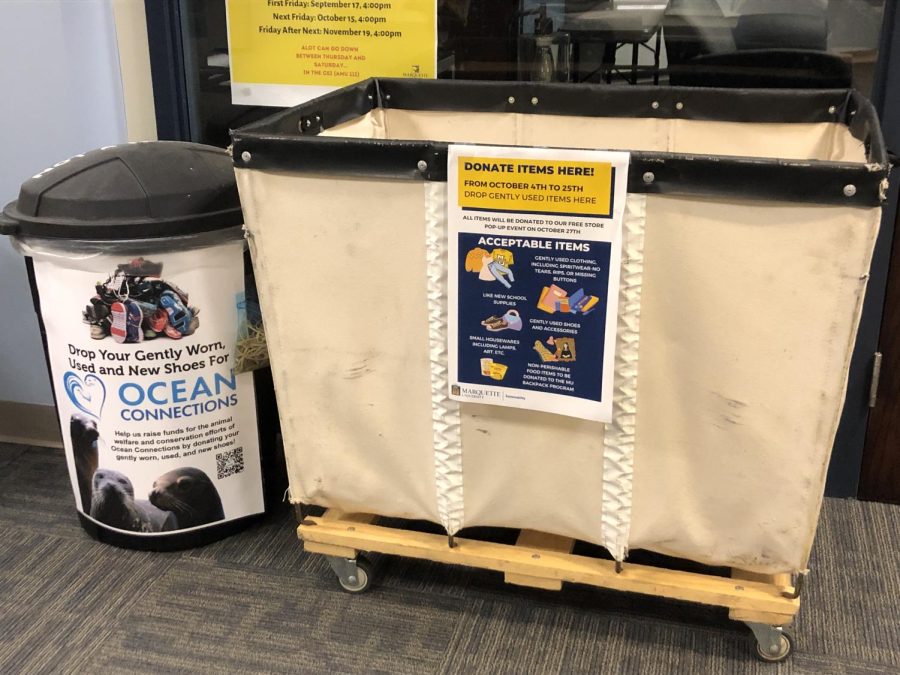With the rising demand for the implementation of sustainable options on college campuses, Marquette University recently opened four new bike repair stations.
The stations are located at the Alumni Memorial Union walkway to Weasler Theatre, the Olin Engineering overhang, outside of Eckstein Hall and on the first floor of the 16th Street parking structure.
In 2018, the first Campus Sustainability Plan was released, and it included sustainability goals and priorities for the university.
Chelsea Malacara, sustainability, and energy management coordinator at Marquette University, explained the motivation behind opening the bike repair stations on campus.
“One point to make note of in that plan is our goal to reduce fossil fuel emissions by 25% by 2025,” Malacara said.
To accomplish this goal, Marquette is encouraging students to support commuter emission reductions by use of cleaner modes of transportation, like taking the bus, walking, carpooling and, of course, biking.
Malacara wanted to make this dream a reality, and she said the bike stations are a step toward a more sustainable campus. Over the summer, Malacara hosted sustainability intern, Miriam Schwabe, and together they created a proposal for the Residential Life Leadership Board, which purchased one station. The other stations were purchased by the Facilities Planning and Management.
Schwabe, a junior in the College of Arts & Sciences, said she is very passionate about the installation of bike repair stations. She has high hopes for the impact of the bike stations on campus and sees them bringing a lot of improvement in sustainability on campus.
“The short-term goal with bringing these bike stations to campus is to encourage alternative forms of transportation. The long-term goal is to help Marquette become a leader in campus sustainability. I hope that we can become a model of a great sustainable campus for other universities, instead of waiting for others to take the lead,” Schwabe said.
Sustainability on college campuses is now a deciding factor for students when choosing a college. The Association for the Advancement of Sustainability in Higher Education recorded in a survey that “current freshmen are two times more likely to choose their school based on sustainability concerns than the entering freshman class just three years ago.”
In order to encourage students to attend Marquette, Schwabe mentioned that actions like the bike repair stations will create a more welcoming campus.
Malacara explained how the bike stations work; “The bike station has two primary functions. The first is that they come equipped with a manual air pump. The second is that each station also has a set of tools to perform basic bike maintenance,” she said.
To make these bike stations available to more people, they aren’t just for Marquette students. Anyone has access to these bike repair stations.
“The great thing is, all the stations are free to use by anyone, Marquette community member or not. If you have absolutely no clue what you’re doing, they also have a QR code on them that is linked to a Dero site with a series of easy-to-use tips, manuals, and videos on how to perform some of the fixes,” Malacara said.
Hannah Mauch, a graduate student working as Graduate Assistant for Residence Life Programs, also participated in making the bike repair station idea a reality. She helps promote campus sustainability in the form of programs through the Residence Life Leadership Board.
“In order to maintain RHA’s mission from Sustainability Week, RLLB may look into partaking in a campus clean-up, or a similar service event geared toward environmental awareness,” said Mauch. “Additionally, we encourage each Residence Hall’s Community Programming Council to plan programs to spread awareness throughout the school year.”
Through both the bike repair stations and other sustainability programs, Marquette has started to make progress at accomplishing our goals, but more work still needs to be done. “The Office of Sustainability and Energy Management is doing some great work at the moment, but we have a long way to go before we reach our 2025 goals,” said Schwabe.
This story was written by Phoebe Goebel. She can be reached at phoebe.goebel@marquette.edu


